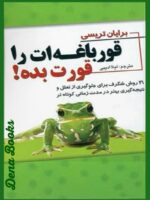طوبا و معنای شب
به طورکلّی، داستان نویسان معاصر زن ایرانی، دو مسأله را همواره در رمانهای اجتماعی خود مدّ نظر قرار دادهاند: نخست مسأله چالشهای هویّتی و بحرانهایی که فرد در یک جامعه سنّتی رو به گذار در حال طی کردن آنها است و دوم استفاده از تکنیکها و ادبیّات و فرمهای جدید روایت برای خلق اثری به غایت پیچیده و کاملاً ادبی. از زمان انتشار رمانِ سووشونِ سیمین دانشور، رمان نویسان معاصر زن ایرانی، با خلق قهرمانان زن و حتّی گاه یک ضدّ قهرمان در رمان، تمام بحرانهای سنّتی رمان ایران را به چالش کشیدند. بحرانهایی که معمولاً خبر از جامعۀ آشوب زدۀ نویسنده میدهد. در این میان، از جمله نویسندگانی که از سویی به بحرانهای اجتماعی و از سوی دیگر به شیوۀ رئالیسم جادویی توجّه دارند میتوان شهرنوش پارسی پور را نام برد که با وجود این که بیشتر آثارش غیرقابل انتشار در ایران هستند، امّا خوانندگان خود را به خوبی در میان قشر کتابخوان طبقة متوسّطه پیدا کرده است. در این مقاله با روش توصیفی- تحلیلی سعی شده است تا با محور قرار دادن شورش علیه بحرانها و خلأهای اجتماعی، نکات جامعه شناسی در این رمان بررسی و مورد تحلیل قرار گیرد.
طوبا دخترک مرد دانشمندی به اسم ادیب است دختری با موهای طلایی که پدر به فکر می افتد بر خلاف سایر زنان به او سواد بیاموزد و ادب ! طوبا سنی ندارد که پدرش فوت می کند و پسر عموی پیری خواستگار مادر است ، طوبا برای نجات مادر همسری خودش را به مرد پیش نهاد می کند و این چنین است که زندگی طوبا آغاز می شود . دختری نوجوان در اواخر قرن 19 و پیرزنی نالان در قرن 20.
داستانی که شاید در حقیقت یکی از موارد مورد نظر آن بازدید تاریخ ایران ، سیر تحولات و شخصیت و طرز فکر افراد در دوره ای از تاریخ از اواخر قاجار تا اوایل پهلوی است ….
An Iranian woman forges her own path through life in this “stylishly original contribution to modern feminist literature” (Publishers Weekly).
After her father’s death, fourteen-year-old Touba takes her family’s financial security into her own hands by proposing to a fifty-two-year-old relative. But, intimidated by her outspoken nature, Touba’s husband soon divorces her. When she marries again, it is to a prince with whom she experiences tenderness and physical passion and bears four children—but their relationship sours when he proves unfaithful. Touba is granted a divorce, and as her unconventional life continues, she becomes the matriarch of an ever-changing household of family members and refugees . . .
Hailed as “one of the unsurpassed masterpieces of modern Persian literature” (Iranian.com), Touba and the Meaning of Night explores the ongoing tensions between rationalism and mysticism, tradition and modernity, male dominance and female will—all from a distinctly Iranian viewpoint. Defying both Western stereotypes of Iranian women and expectations of literary form, this beautiful novel reflects the unique voice of its author as well as an important tradition in Persian women’s writing.
Born in Iran in 1946, Shahrnush Parsipur began her career as a fiction writer and producer at Iranian National Television and Radio. She was imprisoned for nearly five years by the Islamist government without being formally charged. Shortly after her release, she published Women Without Men and was arrested and jailed again, this time for her frank and defiant portrayal of women’s sexuality. While still banned in Iran, the novel became an underground bestseller there, and has been translated into many languages around the world. She now lives in exile in Northern California.















